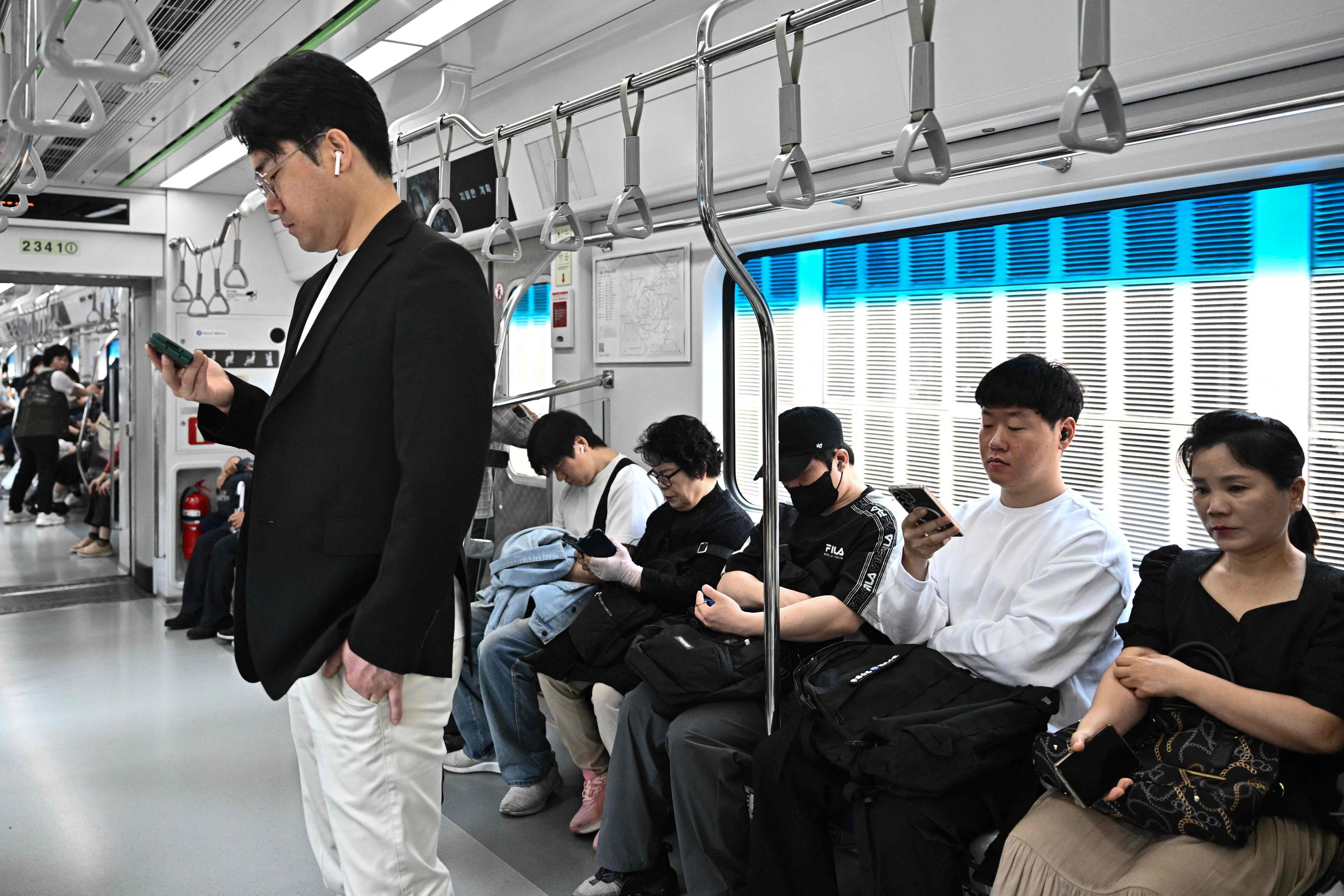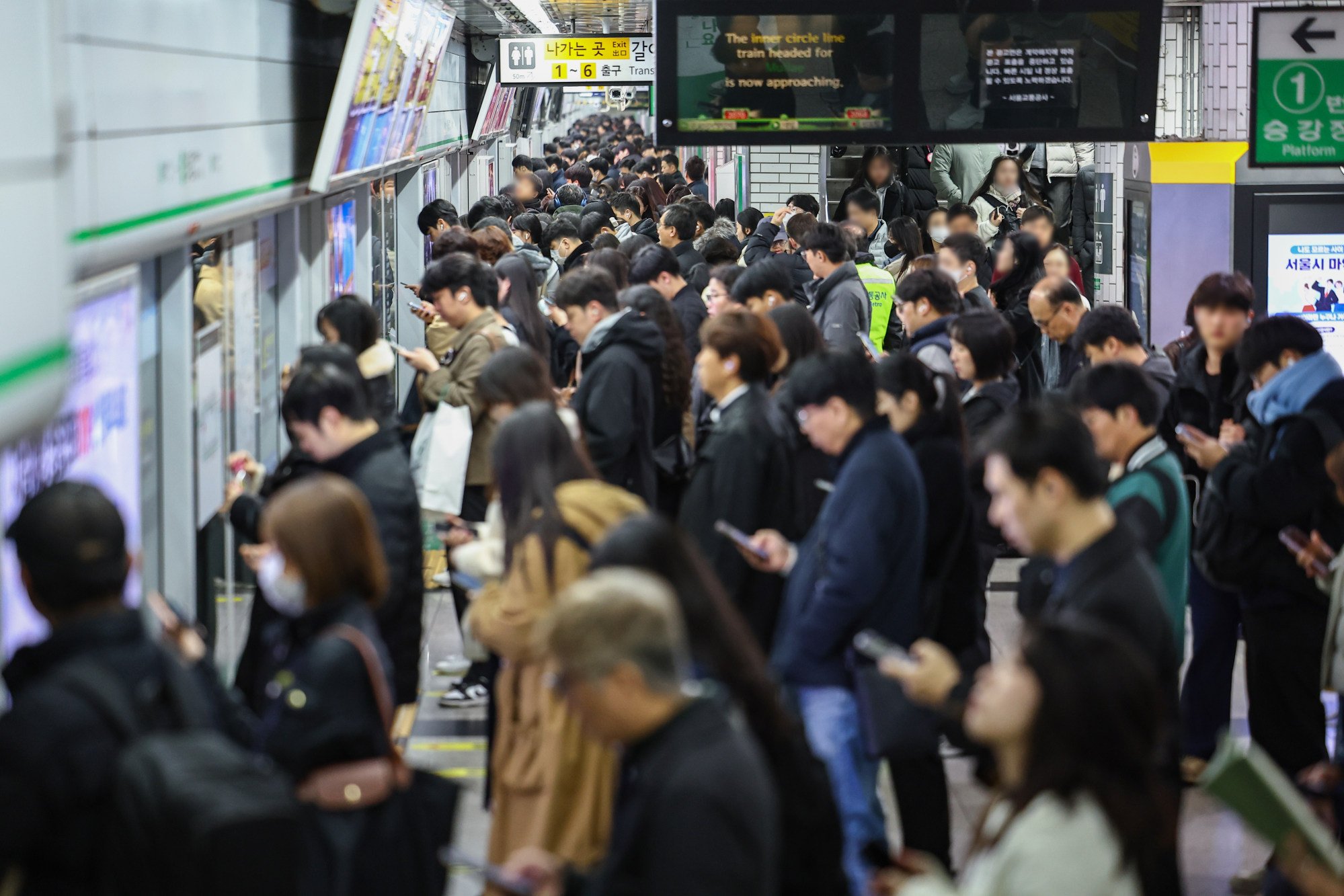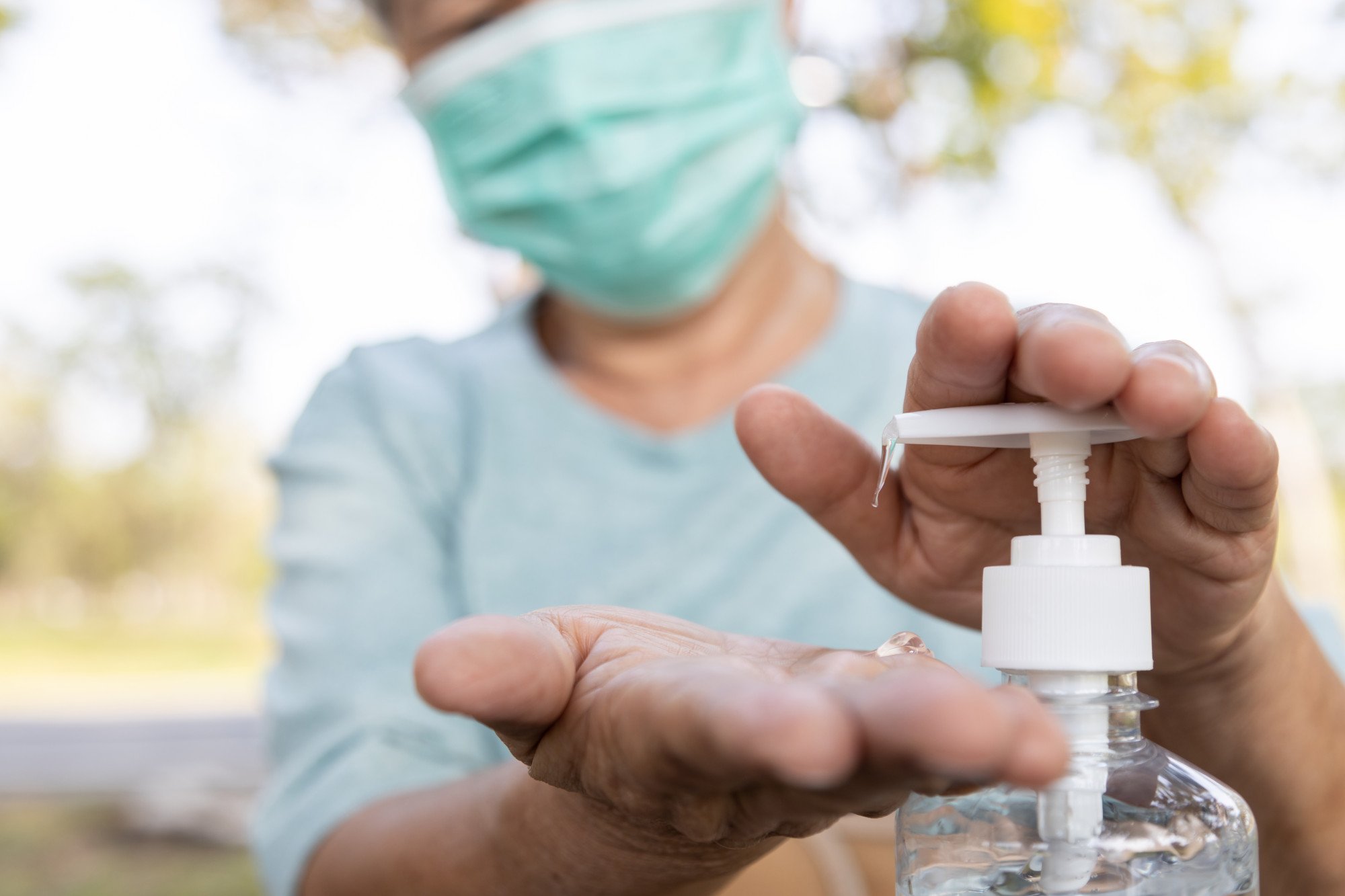Blood cancer cases at Seoul Metro spark workplace safety concerns
Thirteen maintenance workers affected so far, with new study citing prolonged exposure to toxic chemicals such as benzene as possible cause

South Korea’s workplace safety is under scrutiny after five Seoul Metro maintenance workers were revealed to have been diagnosed with blood cancer, raising fresh concerns about long-term exposure to carcinogenic substances.
Officials on Wednesday said two of the five workers had died from “acute leukaemia”, the Korea Times reported, citing a study by the Korea National Open University.
The affected workers were responsible for maintaining trains on Lines 1 through 8 of the Seoul Metro.
All five had spent years performing core maintenance tasks, including dismantling, cleaning, repairing, welding, grinding and repainting subway trains.
According to the Korea Times, one was diagnosed in 2009 at age 39 and retired three years later. Another was diagnosed in the same year and retired in 2011 at age 51. The remaining three are still employed.
The latest cases follow last year’s discovery of eight other workers diagnosed with the same conditions – including three deaths – bringing the total number of affected employees at Seoul Metro to 13.
The study, started in December 2024, involved 4,438 current and former employees in the vehicle maintenance division, according to the Korea JoongAng daily.
Prolonged exposure to toxic chemicals during painting and cleaning duties was cited as a possible cause, with benzene, a chemical used in cleaning and painting processes, the likely factor, researchers at the Korea National Open University said.
The diagnosis report for one worker – whose case was approved as an industrial accident – stated there was a “reasonable causal relationship” between the illness and workplace conditions.

Although Seoul Metro banned benzene in 2011, workers could still have been exposed to the chemical during painting operations as recently as 2022, the report added.
Benzene is classified as a Group 1 carcinogen by the International Agency for Research on Cancer and a proven cause of leukaemia and other blood cancers.
Despite the alarming pattern, the study found no statistically significant evidence that vehicle maintenance workers would face a higher risk of blood cancer compared to the general population, the Korea Times reported.
The city’s mayor, Oh Se-hoon, ordered an investigation last year, urging the subway operator to look into the working conditions and come up with preventive measures. Oh also launched an epidemiological study and established a task force to conduct the probe.
None of the five new cases had filed workers’ compensation.
“Many of them did not disclose their illness, making it hard to confirm,” a Seoul Metro official said. “We only found out about the two deceased through surveys and retiree networks.”
The company said it would cover medical expenses and legal fees for workers seeking industrial accident compensation. It also plans to conduct regular blood tests and clinical exams every six months for employees exposed to benzene.
The company will implement safety upgrades at train depots, with a comprehensive plan to be released next month. Additionally, it has extended its blood cancer task force – initially set to end in June – through December to finalise safety enhancements and follow-up measures.

Benzene, a naturally occurring component of crude oil, is commonly found in cigarette smoke, vehicle emissions and industrial paints.
Recently, it has drawn widespread attention after being detected in concerning levels across numerous personal care products – including hand sanitisers, sunscreens, contaminated deodorants, dry shampoos and antifungal sprays.
East Asia is one of the top 10 regions with the most workplace exposure to benzene, according to an article published earlier this year in the medical journal BMC Cancer.
It is also among regions with the most cancer deaths from workplace carcinogens, a data tracker from the Global Burden of Disease has shown.
Occupational cancer cases are not uncommon in South Korea. In a landmark ruling last year, the country’s Supreme Court recognised the 2015 leukaemia death of a Samsung engineer as an industrial accident – the decision coming nine years after the incident.
Last year, a former employee of SaskEnergy, a gas supply giant in Canada, died of complications from leukaemia and stomach cancer after he spoke out about the risks of workplace exposure to carcinogenic compounds, including benzene.